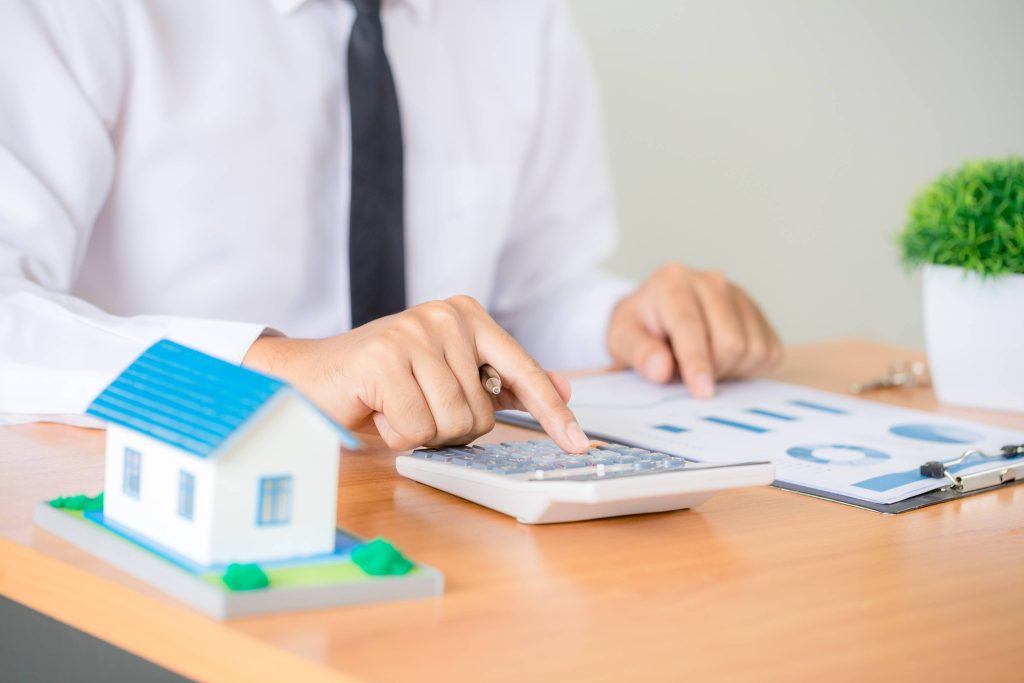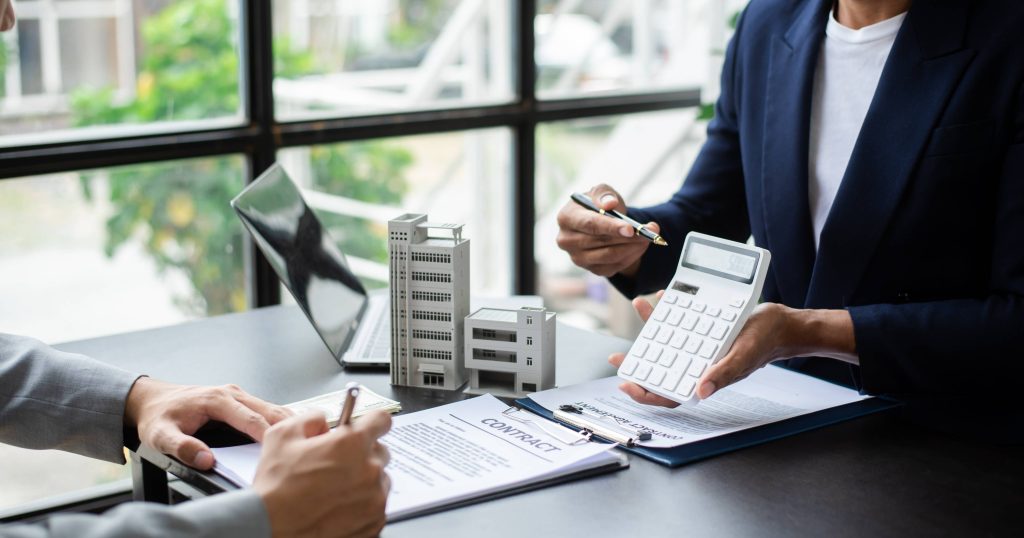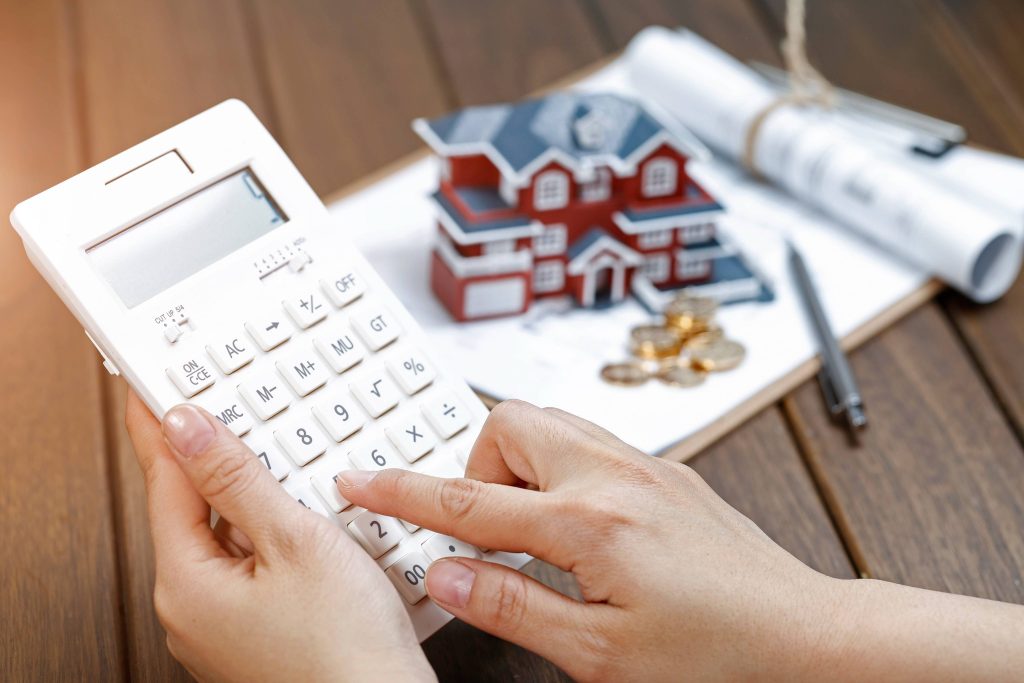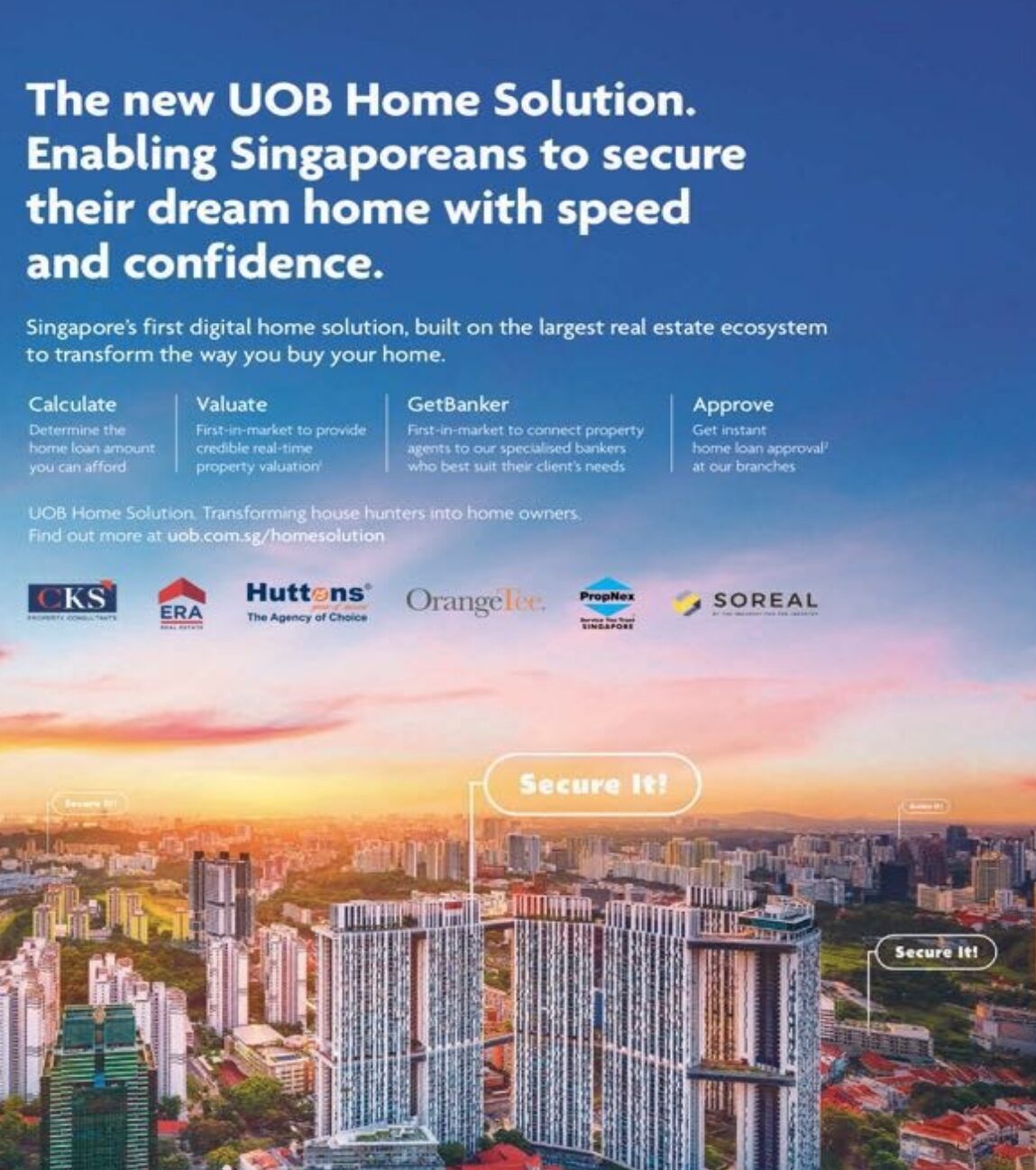Selling Property in Singapore: Challenges, Solutions & Processes
Home / Blogs & Articles / Selling Property in Singapore: Challenges, Solutions & Processes
Selling Properties at a Glance
Selling property in Singapore involves various important steps and considerations. From understanding the legal requirements to engaging professionals, the process can seem complex. Here are a few key points to keep in mind when selling a property in Singapore:
- Legal Requirements: Understanding the legal framework helps ensure the sale complies with regulations and avoids potential disputes or delays.
- Tax Considerations: Being aware of taxes such as Stamp Duty and Seller’s Stamp Duty (SSD) allows you to plan financially and avoid unexpected costs that may reduce your net proceeds.
- Outstanding Liabilities: Clearing mortgages and other dues is crucial, as these must be settled before the property can be legally transferred to the buyer.
- Engage a Real Estate Agent: An experienced agent can provide market insights, manage negotiations, and guide you through paperwork, saving time and reducing stress.
- Prepare the Property: A well-maintained and presentable property can attract more buyers and potentially lead to a quicker sale at a better price.
- Property Valuation: When selling a property in Singapore, knowing your property’s market value ensures you set a realistic asking price and strengthens your position during negotiations.
- Sale Agreement and Transfer: A formal agreement and proper transfer of ownership protect both parties and ensure the transaction is legally binding.
- Receiving Proceeds: Understanding when and how proceeds are disbursed helps you plan for your next steps, whether it’s reinvestment, relocation, or other financial goals.
Understanding the Current Singapore Real Estate Market
1. Private residential property prices rose modestly by 0.8% in Q1 2025, slowing from a 2.3% increase in the previous quarter.
2. While the rental market remains steady, with private sector rents edging up slightly, the supply pipeline is strong, with approximately 55,600 new homes expected to be completed in the next few years. These comprise approximately 26,300 units (including ECs) scheduled for completion between 2025 and 2027, and a further 29,200 units expected to be completed in 2028 and beyond.
3. Analysts predict the broader private home market will experience 3 to 4% growth in 2025.
4. However, more conservative outlooks suggest stability is more likely, with forecasts of 0 to 1% price growth due to economic uncertainties and interest rate pressures.
5. Prices surged nearly 9.6% in 2024, driven by strong demand and a shortage of flats meeting the Minimum Occupation Period.
What This Means for Sellers
– Private property prices are still trending upward, but at a more subdued pace.
– Resale HDB flats remain a key driver, with their strong performance influencing the private market.
– New housing supply is significant, so realistic pricing, home staging, and targeted marketing are essential to stand out.
– Higher interest rates and economic caution may weigh on buyer sentiment, but structural supply constraints continue to support values.
Think you are getting the right price for your property? Unfortunately, it is not always as straightforward. Selling a property in Singapore comes with several challenges, including strict local regulations, fluctuating market trends, and buyers with high expectations. Understanding the local market is key in handling properties, whether you are selling an HDB flat or handling rentals on the side. This guide covers some of the most common problems sellers experience and practical solutions to address them.
Common Challenges in Selling Property in Singapore
Selling a property can be both profitable and stressful for a seller. These challenges, including market fluctuations and legal regulations, can have a significant impact on your sales process and profitability. So, let’s take a look at some of the most common challenges:
Regulatory Hurdles
Understanding the local property regulations is one of the first and most significant steps in selling a property in Singapore. Sellers should be familiar with all the rules that govern different types of properties, especially when selling an HDB unit. For example, HDB owners must complete the Minimum Occupation Period (MOP) before renting or selling their place. If you do not meet this condition, you can risk delays or even disqualification from selling.

In addition to these hurdles, understanding the tax implications of property purchases is crucial. Even though property agents in Singapore understand all these taxes and regulations, it is good to be informed yourself. For instance, the Additional Buyers Stamp Duty (ABSD) is a significant tax that can affect both your pricing and overall sale revenues. While ABSD primarily affects purchasers, its effect on property prices and demand might indirectly influence how quickly your property sells.
Understanding the taxes, stamp duties, and eligibility requirements for selling a property in Singapore helps avoid these issues. So, make sure you meet all these requirements to have a smooth sales experience.
Latest Singapore Property Market
Singapore’s private residential market maintains a steady upward trajectory. According to URA’s Q1 2025 release, private home prices rose 0.8% quarter-on-quarter, easing from the 2.3% increase in Q4 2024. Landed properties saw a modest 0.4% gain, while non‑landed homes strengthened by 1.0%, led by the Rest‑of‑Central region’s 1.7% uplift. Meanwhile, overall private residential rentals rose 0.4% QoQ, marking the first increase after a flat Q4 2024.
Developers unveiled 3,139 new units in Q1 2025 (excluding ECs), selling 3,375 units, slightly below Q4’s sales. The supply pipeline remains robust, with nearly 55,600 units due for completion in the next few years.
Analysts remain bullish yet cautious. Savills forecasts private home prices could climb up to 7% in 2025 if no new cooling measures are introduced, reflecting sustained demand from PRs and Singaporean upgraders. CBRE anticipates rental recovery of 1 to 3% for the year, supported by lower new completions and tightening vacancy rates (currently ~6.5%).
The resale HDB market continues its strong run: prices skyrocketed 8.6% in 2024 and are likely to grow moderately further, supported by improving mortgage rates and sustained buyer activity.
Key Takeaways for Stakeholders
– Private homes: Prices are rising moderately; expect around 3 to 7% growth in 2025, depending on policy and economic conditions.
– Rental market: Showing signs of revival with expected 1 to 3% growth, driven by constrained new supply.
– Resale HDB flats: Still going strong; prices surged over 8% last year, with room for further gains, especially if interest rates ease.
– Market dynamics: Developers’ sales remain healthy, but a deeper pipeline suggests more competition among sellers in coming years.
– Risk factors: Potential new cooling measures, global economic headwinds, and interest rate movements could temper momentum.
Buyer Expectations
Buyers are more aware and discerning than ever before, with easy access to information online. Many seek out properties that already have modern amenities, sleek decor, and well-maintained features. Furthermore, many online property listings in Singapore come with comparison tools, so buyers have a competitive edge when it comes to price transparency. This makes it critical for sellers to price their houses competitively or risk losing out to better-priced or more appealing alternatives. Therefore, sellers need to think strategically about what would work in today’s market, especially in areas with new developments.
Competition
There is never a shortage of properties in Singapore, breeding fierce competition, especially in prime locations. Regardless of your property type—HDB, condo, or landed—you have to make sure your listing is visible and appeals to the right prospects. Standing out by delivering on potential buyers’ emotional and practical needs is a smart move to navigate through the competition.
For instance, sellers can offer competitive prices or appealing incentives, like covering partial closing costs or giving away furniture/appliances. Especially when you are selling a property in Singapore in an area with multiple homes available, think about how your listing can stand out—whether through special promotions, unique selling qualities, or strategic marketing efforts.
Solutions to Overcome Selling Challenges
Don’t fret over all these challenges, as there’s always a way to navigate through them. Let’s take a look at a few strategies that can effectively smooth out the entire process for a successful sale:
- Engaging Professional Help
- Effective Property Marketing
- Addressing Buyer Concerns
- Utilising Technology
- Flexibility and Incentives
1. Engaging Professional Help
Selling a property in Singapore can be challenging, but hiring an experienced real estate agent can make a world of difference. Conduct an interview with your prospective agent to assess his credentials, track records, market specialisation and marketing platforms to see if he is a right fit for your property. An experienced agent should have extensive knowledge of market trends and regulations to guide you through the sales process. Your appointed agent should assist you in handling all sales negotiations, attempt to achieve the best possible deal and act in your best interests at all times.
Obtaining a property valuation from a licensed appraiser will also allow you to set a realistic price benchmark for smoother negotiations. A valuation expert ensures that your property is priced correctly, avoiding the possibility of delays caused by fluctuating pricing or mismatched expectations. It also provides buyers with confidence that their purchase can be supported by a bank mortgage.
With the assistance rendered by these professionals, you can focus on planning your move while they attend to the finer details of the sales process.

2. Effective Property Marketing
How to sell property in Singapore effectively? Marketing is the tool that you need to stand out in today’s competitive market. Professional photography, comprehensive listings, and online ads on major platforms are all necessary tools for increasing your property’s visibility.
Home staging can also have a significant impact on your property’s appeal by providing a warm and aspirational environment that attracts purchasers. Furthermore, using social media and property portals helps access a larger audience, boosting your chances of selling a property in Singapore. Investing in a good marketing approach ensures that your home receives the attention it deserves.
3. Addressing Buyer Concerns
Buyers often express reservations about the condition when buying a house in Singapore, specifically when looking for older homes. Offering a pre-sale inspection and letting buyers get a better idea of the property’s condition can help address these concerns and give them peace of mind. Transparency is essential when selling a property in Singapore. Being open about any repairs or improvements you have made fosters trust and reduces the risk of renegotiations in the future. If any issues remain, providing practical solutions or advice might increase buyers’ confidence in their decision to proceed.
4. Utilising Technology
At times, personal commitment prevents potential buyers from attending physical property viewings. Implementing virtual tours or 3D walkthroughs offers a seamless and efficient alternative, enabling prospective buyers, including international clients to explore properties. Furthermore, leveraging data insights empowers sellers to determine market-competitive property value that align with buyers’ preferences. Integrating innovative technologies not only expedites the process of selling a property in Singapore but also differentiates property in a highly competitive market.
5. Flexibility and Incentives
Being flexible can make your house more appealing to potential buyers. Offering incentives, such as covering partial closing costs or offering furniture, might help your listing stand out. These additional benefits are especially attractive to investors or rental properties in Singapore. Adjusting your timeframe to fit buyer preferences or providing inventive solutions to satisfy their needs can result in a win-win situation, increasing the likelihood of a successful deal.
The Selling Process in Singapore
Selling a property in Singapore is a structured procedure that demands meticulous attention and expert advice. Let’s break down the key steps to streamline the entire selling process:

1. Pre-Sale Preparations
Effective planning is key for attracting potential buyers and hitting the intended sale price.
- Property Valuation: Hire a professional property valuer to calculate a competitive price based on current market conditions and comparable properties. Valuation reports guarantee that your house is reasonably priced under the current market value.
- Repairs and Staging: Fix any visible maintenance issues, such as worn-out paint or damaged fixtures. Proper staging can also increase your house’s appeal by allowing potential buyers to envision themselves in the space.
- Cost Planning: Consider all associated costs, including repairs, staging, agency charges, legal fees, and seller’s stamp duty (SSD). This ensures that the pricing covers these costs when selling a property in Singapore, avoiding any unexpected financial issues.
2. Listing and Marketing Your Property
Flats for sale in Singapore require effective marketing to attract prospective buyers and highlight their unique features. Here’s what you need to know when listing your property:
- High-Quality Listings: Invest in professional photography and provide extensive, accurate descriptions of the property’s key features. Ensure that your appointed real estate agent has an extensive marketing and co-broking platform to increase the visibility of your property. Your property should be featured on dominant and popular listing platforms like PropertyGuru for wider exposure. Social media channels are also utilised by savvy marketers to reach out to a wider client base.
- Open Houses: House viewings allow prospects to see the property for themselves and estimate its worth in person. A well-presented house can make a lasting impression and help to speed up the sale process.
- Differentiation: In Singapore’s competitive market, it is necessary to highlight your property’s unique features, such as recent home improvements, distance to nearby amenities, or remarkable features that make it stand out. Such remarkable features can include unblocked/sea views, and a smart home system.
3. Negotiating and Closing the Sale
Once you have attracted potential buyers, the next step is to navigate the negotiations and formalise the selling contract.
- Buyer Screening: When selling a property in Singapore, it is important to make sure that the buyer meets the eligibility criteria, which include factors like citizenship status, income limits, and family nucleus size. Singapore is strict in its regulations, especially when it comes to selling HDB flats.
- Negotiation: Both parties will try to get the best price, terms, and conditions for their deal, so be prepared to negotiate to come to a mutual agreement. Being flexible or offering incentives can sway the buyer and close the deal efficiently.
- Sale and Purchase Agreement: Legal bodies can create a law-binding contract for sales and purchase agreements that highlight the essential terms, including payment schedules, completion dates, and any specific conditions or contingencies. So, those buying a property in Singapore will also know how the entire process plays out.
4. Legal and Financial Finalisation
When selling a property in Singapore, be mindful of legal and financial details for a smooth transfer of ownership.
- Conveyancing: Hire a conveyancing lawyer to handle the legal aspects of the property transfer. They will manage the paperwork, conduct title checks, and ensure that all applicable regulations are complied with.
- Payments and Taxes: The buyer will make deposits, including the Option Fee and the Sale Deposit. To avoid complications later on, make sure you settle any necessary taxes, such as Seller’s Stamp Duty (SSD).
5. Handover and Completion
The final step in the sales process is the formal transfer of ownership.
- Final Inspections: Perform a comprehensive check to ensure that the property is in the agreed-upon condition.
- Document Transfer: Ensure that the buyer receives all required paperwork, such as property titles, maintenance records, and warranties and manuals.
- Settlement: Check that every financial obligation, including outstanding payments (example, MCST maintenance fees/sinking fund) and legal fees, is successfully paid before the ownership transfer takes place, and the keys are handed over.

Overlooked Aspects When Selling Property
While many homeowners focus on getting the best price, several less obvious factors can complicate the sale of a property in Singapore. Being aware of these blind spots can help sellers avoid delays, legal trouble, or unexpected costs.
Hidden Costs and Fees
Selling a home isn’t without its expenses. Common hidden costs include legal fees, agent commissions, marketing expenses, and early mortgage redemption penalties. Failing to account for these can significantly affect net proceeds from the sale.
Potential Buyer Financing Issues
Not all buyers secure their loans on time. Some may face delays in obtaining approval, or worse, may have their financing fall through. This can derail transactions, especially if you’re relying on the funds to complete your next property purchase.
Legal Obligations and Disclosures
Sellers must ensure all documentation is accurate and complete. Misrepresentation, whether intentional or accidental, can result in legal consequences. Full disclosure of defects, encumbrances, and renovations is essential.
Negotiation Pitfalls
Negotiating beyond price, such as furnishings, handover dates, or repair clauses, can lead to friction if not clearly documented. Poor negotiation or unclear communication may cause misunderstandings that prolong the sale or create disputes post-transaction.
Post-Sale Responsibilities
Even after handing over the keys, sellers may still be liable for certain things, such as defects that weren’t disclosed or utilities that weren’t properly terminated. Overlooking these can lead to administrative or legal complications.
Selling a property in Singapore consists of several steps, but with proper preparation and professional advice, you can ensure a smooth and successful experience.
Make Selling Property in Singapore Hassle-free
Selling a property requires proper planning and being informed about all the regulations that revolve around it. Understanding these rules and regulations along with the buyer’s intent is a surefire way to conduct a successful sale. In Singapore, with its ever-changing regulations and market fluctuations, hiring a qualified real estate agent who can streamline the entire process is a smart move. By navigating these challenges, selling a property in Singapore is no longer a hassle.
Ready to have a rewarding sales experience? Get in touch with CKS Property Management for a professional valuation. Our team has a combined valuation experience of over 100 years and can accurately assess your property’s value, guiding you through the entire sales process.
FAQs for Homeowners Looking to Sell in Singapore
What key regulations should I know when selling property in Singapore?
Learn about seller’s stamp duty (SSD), the Residential Property Act, and foreign ownership rules. These rules govern eligibility, taxes, and transfer procedures, ensuring that your transaction complies with local regulations. Visit the IRAS website for tax-related matters and the URA, HDB, and SLA websites for other regulations on property ownership and usage.
How can I check the right price for my property?
Checking the right value for your property requires involving a professional valuer who conducts checks, comparing it to other previously sold properties in the area. Not only can a competitive price attract serious buyers but it can also maximise your return on investment. Check our property valuation services for an accurate value of your property.
What role does a property agent play in the selling process?
Professional agents understand how to properly market your property, negotiate with buyers, and handle all the legal documentation. They also leverage their network to connect sellers with potential buyers and secure better offers. Their expertise in understanding the local market dynamics and regulations ensures that you don’t encounter any problems when selling a property in Singapore.
What is the tax on selling property in Singapore?
When selling property in Singapore, the key tax is the Seller’s Stamp Duty (SSD), which applies if a private residential property is sold within three years of purchase. SSD generally doesn’t apply to HDB flats due to the five-year Minimum Occupation Period. There’s no capital gains tax for individuals unless property sales are part of a business.
When can I sell my private property?
You can sell your private property at any time, but if you do so within three years of purchase, Seller’s Stamp Duty (SSD) may apply:
Sold within 1 year: 12%
Within 2 years: 8%
Within 3 years: 4%
After 3 years: No SSD
To avoid SSD, it’s common to wait at least three years before selling your property in Singapore.
Do sellers pay stamp duty in Singapore?
Yes, sellers may pay Seller’s Stamp Duty (SSD) when selling residential property in Singapore within three years of purchase. The rate depends on how long the property has been held. Buyers, not sellers, pay the Buyer’s Stamp Duty (BSD) and any Additional Buyer’s Stamp Duty (ABSD) if applicable.
Related Articles

Residential Real Estate Valuation
Understanding the true worth of your home is essential, whether you are buying, selling, or ensuring adequate insurance coverage. A professional residential real estate valuation provides a clear picture of a property’s reinstatement cost, market position, and long-term value.

Commercial Building Valuation
Commercial properties face unique valuation challenges, from fluctuating rental yields to long-term asset planning. A commercial building valuation helps owners, investors, and businesses accurately assess their property’s worth, supporting informed financing, insurance, and strategic decision-making.

Rental Valuation
Whether you are a landlord seeking fair rental returns or a tenant verifying rental terms, an independent rental valuation ensures transparency and aligns with the market. It provides insights into prevailing rental trends and helps establish confidence in lease agreements.
Copyright © 2024 CKS Property Consultants Pte Ltd


